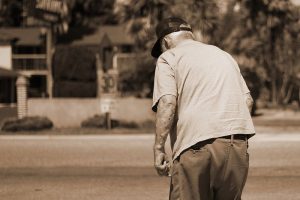![]() A new federal nursing home bill is designed to prevent elder abuse, and it could help patients at facilities in San Bernardino County and throughout California. According to a recent article in Skilled Nursing News, the proposed legislation “seeks to protect individuals in nursing homes by implementing more stringent staffing protocols—including increased clinical hours and training—among other safety measures for residents.” Nursing home abuse and neglect often occurs as a result of understaffing. If a federal law were to mandate certain staffing numbers in facilities, rates of abuse and neglect could drop.
A new federal nursing home bill is designed to prevent elder abuse, and it could help patients at facilities in San Bernardino County and throughout California. According to a recent article in Skilled Nursing News, the proposed legislation “seeks to protect individuals in nursing homes by implementing more stringent staffing protocols—including increased clinical hours and training—among other safety measures for residents.” Nursing home abuse and neglect often occurs as a result of understaffing. If a federal law were to mandate certain staffing numbers in facilities, rates of abuse and neglect could drop.
Learning More About the Quality Care for Nursing Home Residents Act
The proposed law is known as the Quality Care for Nursing Home Residents Act. The bill is co-sponsored by two Democratic lawmakers, Rep. Jan Schakowsky (Illinois) and Sen. Richard Blumenthal (Connecticut). It has support from lawmakers in both the House and Senate. In addition to requiring certain staffing levels for facilities receiving payments through Medicare and Medicaid, the bill would also make other changes to nursing home mandates. First, nursing staff members would be required to go through “heightened training” and would be subject to heightened “supervision obligations.” This requirement, in connection with the requirement for increased staff numbers, aims to prevent nursing home abuse and neglect by targeting staff at these facilities. Three registered nurses (RNs) would have to be on staff as “management personnel.”
 Southern California Nursing Home Abuse Lawyer Blog
Southern California Nursing Home Abuse Lawyer Blog
















